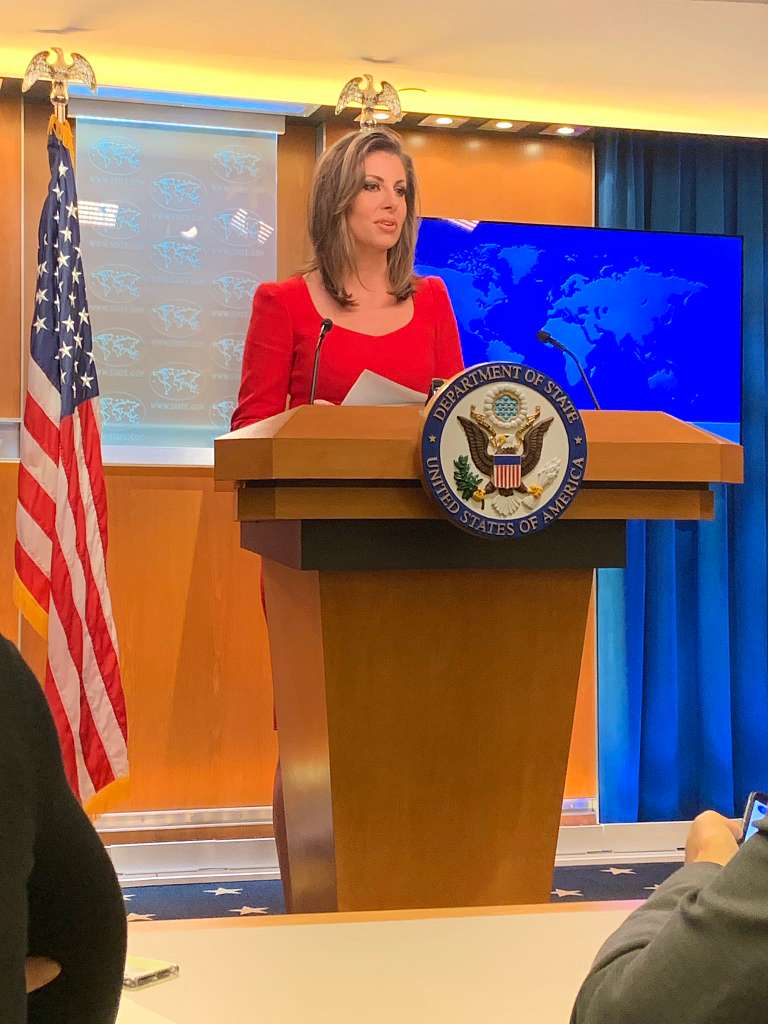The Trump Administration’s attempt to dictate terms on the new Lebanese government’s cabinet appears to have failed spectacularly. The new Lebanese cabinet has been announced, and includes multiple members from both Hezbollah and the Shi’ite Amal Movement.
The administration has been browbeating Lebanon for weeks on this issue, insisting no Shi’ite could be allowed to hold the Finance Ministry, and calling any Hezbollah representation in the government a “red line” as recently as yesterday.
The US had been suggesting Saudi Arabia’s foreign aid for Lebanon’s post war reconstruction was contingent on them not naming a Shi’ite finance minister, though the Saudis don’t appear to have set out this precondition.

Deputy Middle East Envoy Morgan Ortagus called Hezbollah involvement in the Lebanese cabinet a ‘red line.’ Image from Picryl.
In the end, the Finance Minister is Yassine Jaber, a member of the Amal Movement and a Shi’ite. Amal also got the Environmental Minister post, which went to Tarek Mitri. Hezbollah and Amal are seen as broadly allied, though they have different visions for Lebanon’s future.
Hezbollah wasn’t excluded from the cabinet, either. They also got two portfolios, the Public Health ministership going to Rakan Nasreddine, a vascular surgeon supported by Hezbollah. He reportedly aims to modernize Lebanon’s health care system.
Perhaps the higher profile Hezbollah portfolio went to the new Labor Minister, Mohammad Haider. Haider served as the Director of Nuclear Medicine at American University in Beirut, but is also a “specially designated terrorist” as far as the US is concerned because of his membership of Hezbollah’s senior military body, the Jihad Council.
Haider might be more familiar to people because just a few short months ago, he was the target of an Israeli assassination attempt, when they leveled an apartment building in central Beirut with a bunker buster bomb. Israel killed a large number of people in that bombing, but Haider was clearly not among them.
The US has not immediately responded to Lebanon spurning their demands with their new cabinet. Whether they ultimately end up doing anything to punish Lebanon for their defiance is still uncertain, and past US dictates were similarly ignored with little consequence.
In 2009, just before the general election, Vice President Joe Biden went to Lebanon, declaring that the Lebanese had better not vote for Hezbollah politicians and warning US aid would be pulled from the nation if they did. Despite this overt US meddling, Hezbollah ended up performing quite well in the 2009 election, and ended up part of that coalition government. The US briefly placed a hold on military aid to Lebanon in 2010, though they ultimately lifted that hold and sent the money anyhow.


